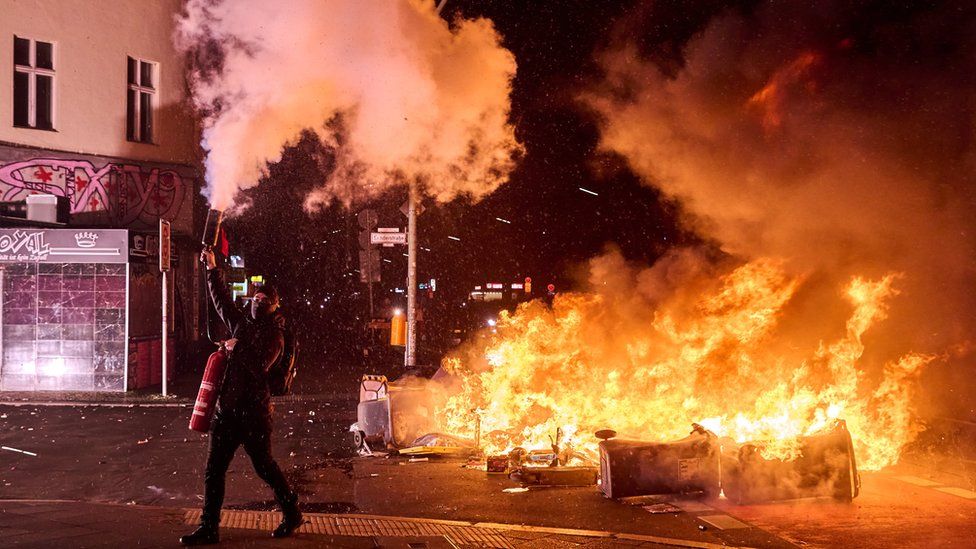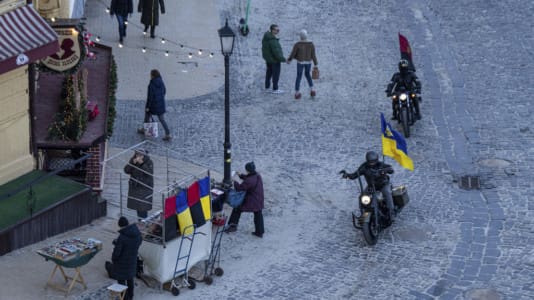New Year celebrations across Berlin last year descended into chaos as emergency service vehicles were torched, shots were fired at police, and hooded men hurled fireworks at firefighters attempting to extinguish infernos in apartment buildings and trash cans on the streets.
In total, police reported 3,943 incidents across the German capital on Dec. 31 resulting in injuries to 15 firefighters and 47 police officers.
A total of 145 arrests were made, of which just 45 suspects held German citizenship — some of whom could be migrants with dual nationality, a tactic often used in the reporting of crime stats across Germany to play down the disproportionate nature of migrant crime.
According to data compiled by the German tabloid Bild, not one suspect arrested on that night has been handed a prison sentence.
[pp id=60787]
Statistics obtained from the public prosecutor’s office showed that 151 cases were filed in connection with the disorder on New Year’s Eve — 89 cases had a known suspect while the remainder pertained to an unknown perpetrator.
The charges brought were related primarily to criminal damage, arson, bodily harm, weapon and explosives violations, and physical attacks against officials.
According to Bild, a total of 91 cases have been marked with “final termination” meaning the proceedings were discontinued as either no suspect could be identified or they absconded.
There are 15 cases where court proceedings are still ongoing and 13 instances still with an open investigation.
Meanwhile, final judgments have been made in 26 cases, none of which resulted in an immediate custodial sentence.
[pp id=61255]
Those whose court proceedings reached a conclusion were either acquitted or received orders for suspended prison sentences, youth sentences with probation, and were handed a fine, a final warning, or issued with an educational order.
At the time of the arrests, Germany’s Federal Interior Minister Nancy Faeser assured the German public that those who had attacked emergency responders would be “punished to the full extent of the law”.
Despite Faeser refusing to link the events to mass migration, several politicians highlighted the correlation between the two.
Interior Senator Andy Grote of the governing SPD accepted that “the issue of migration background plays a role here” and called for severe punitive measures against those who targeted emergency responders.
“That’s about the meanest thing you can ever imagine, attacking those who want to help others,” he added.
Jens Spahn, the deputy leader of the CDU parliamentary group, was more forthright, claiming that “unregulated migration, failed integration, and a lack of respect for the state” were to blame for the “unspeakable” acts of violence.






